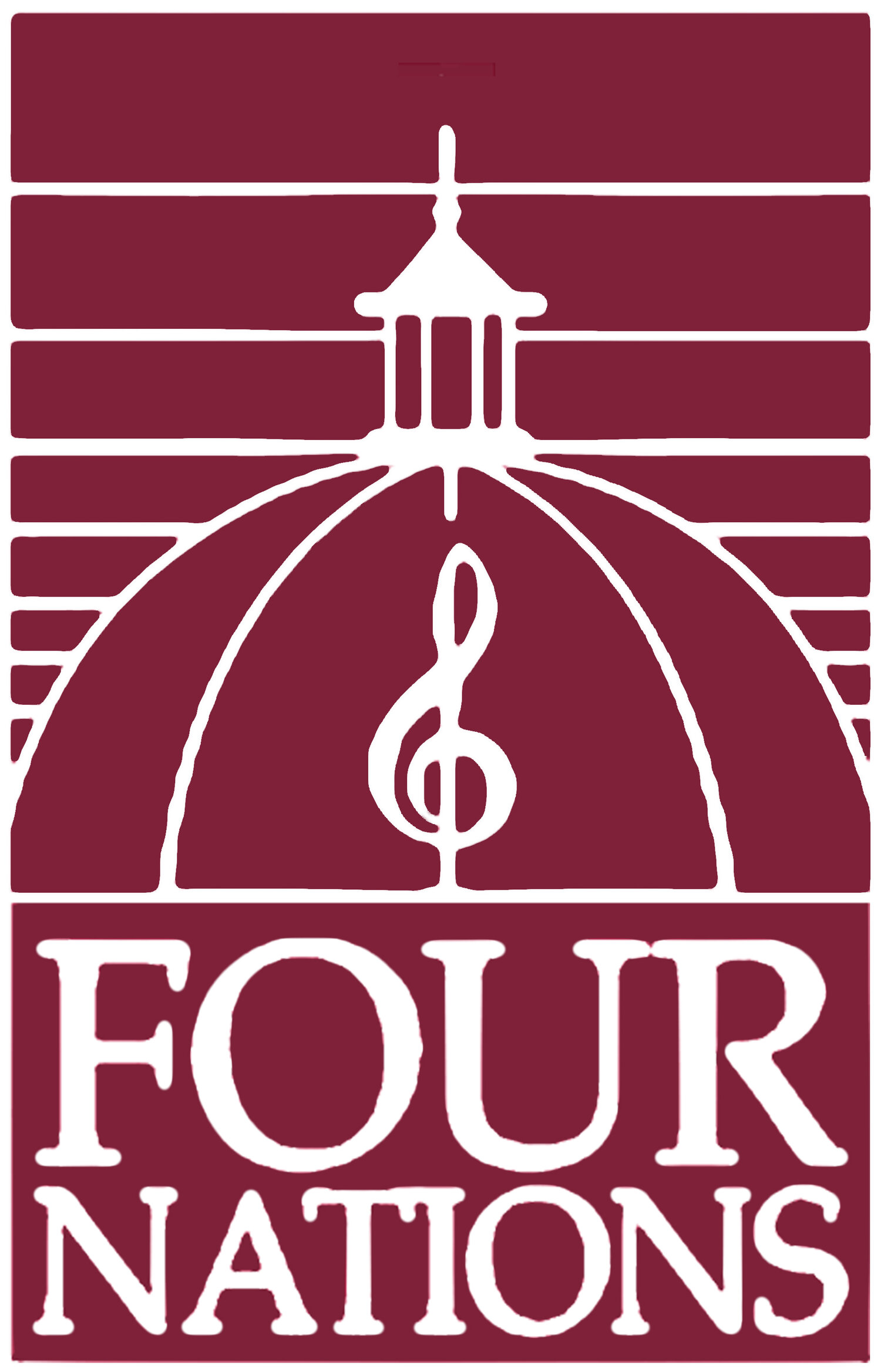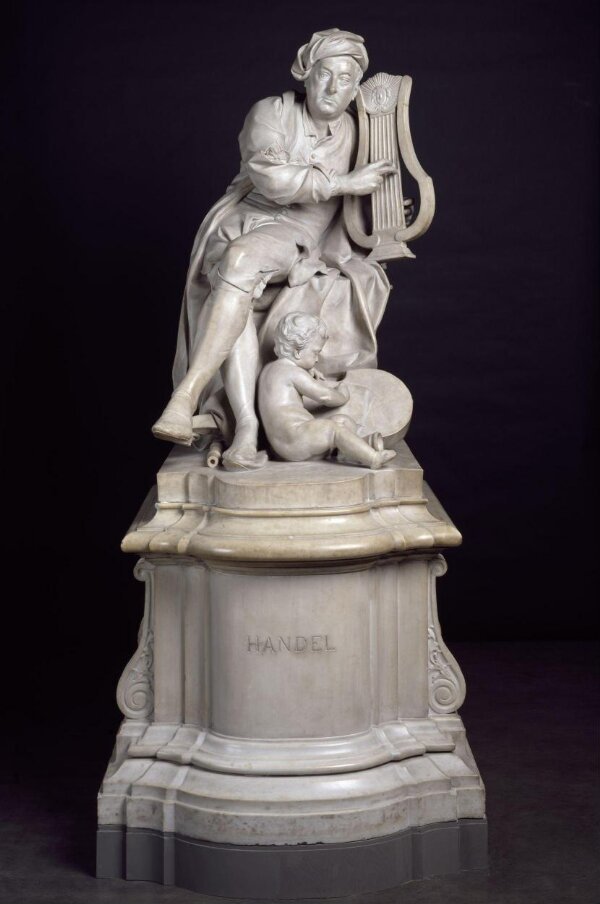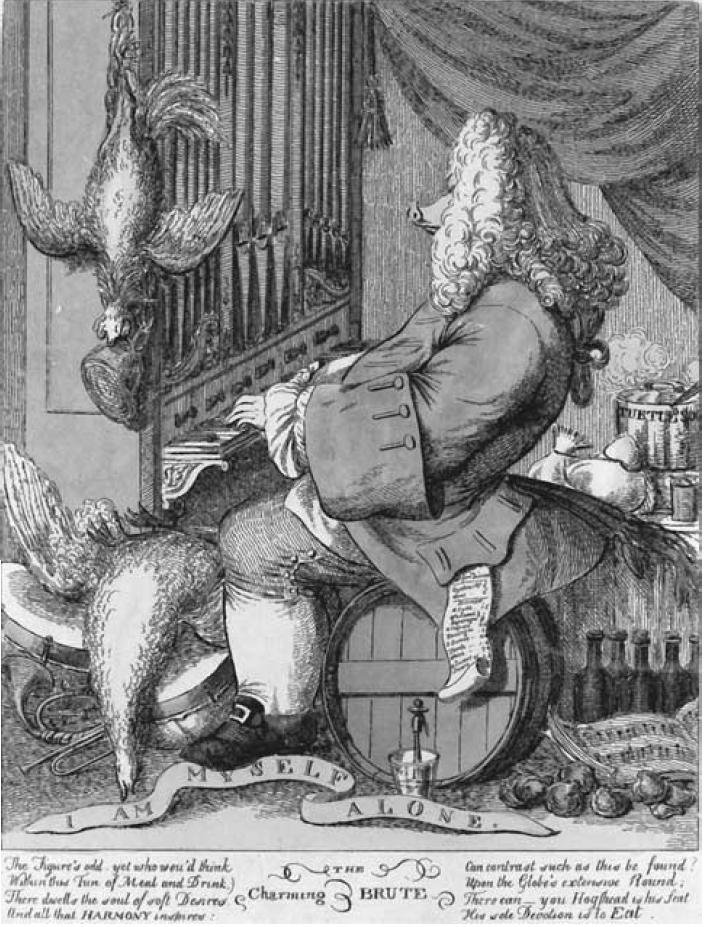Handel’s Players Throw a Party
The Four Nations Ensemble
Thursday, February 23, 2023, at 7:30 PM
Church of the Heavenly Rest
An evening concert at Vauxhall Gardens
THE ARTISTS
Pascale Beaudin, soprano
Olivier Brault & Evan Few, violin
Nicole Divall, viola & viola d'amore
Loretta O’Sullivan, cello
Andrew Appel, harpsichord
THE PROGRAM
Thomas Arne -- Trio II in G major, opus 3
Nicola Haym -- Sonata for cello in A minor
G. F. Handel -- Aria: Falsa immagine (Ottone)
Prospero Castrucci -- Sonata for violin in G minor, opus 1
Handel -- Aria: Ah! Mio Cor (Alcina)
Attilio Ariosti -- Lesson IV in F major for viola d'amore
Handel -- Aria: Vaghe Perle (Agrippina)
Handel -- Chaconne (Parnasso in Festa)
In 1769 the actor David Garrick mounted a Shakespeare jubilee in Stratford on Avon to spotlight the genius of our modern English language and the soul of the dramatic stage. Until this point, it was not agreed upon by the English public that there was a giant to be recognized. After this celebration, for which Thomas Arne wrote his song Soft Flowing Avon, the Bard cast a shadow over previous and subsequent writers. The savage power of his works challenged all of Europe, not only England. The history of literature changed. No longer a gentle landscape of hills, it now resembled a series of foothills with one sublime mountain peak.
The Vauxhall stature of Handel Louis Francois Roubiliac (1738)
In 1784 London saw a parallel celebration for Handel. Yet he had not been eclipsed nor ignored between the year of his death (1759) and the performances in Westminster Abby and the Pantheon to mark the 25th anniversary of his passing. Monuments had already been erected in the Abby and his statue greeted visitors and celebrants at the entrance to popular Vauxhall Gardens. The qualities of his compositions and musical values may have inhibited the modernization of musical taste in London. Ancient Music, meaning sounds that followed Mr. Handel’s models, wielded inescapable power. It would take other immigrants, other Germans to push taste towards the 19th century. Handel presented the public with an image of the sublime but not the unknown. Haydn would launch London into the shocking, disturbing, and novel with his late symphonies.
Handel became the national voice of England. Gigantic choruses and orchestras showcased his monumental presence and served as a representation of national pride.
What must it have been like to compose and perform in the company of Mr. Handel? If you were aware of his unique understanding of the power of music and theater were you discouraged by Handel’s reach? Did Thomas Arne, aside from a sense of competition for the music market, know that Handel’s sublimity recognized by contemporary critical voices, could only be met with a new sentimentality fueled by the honesty and humanity of Scot folk tunes and a gift for comfortable lyricism? Did he understand that though he could guide us to the moors and the Lake District, Handel took us to Sinai and Jerusalem?
Hogarth's engraving showing an infuriated Prospero Castrucci
We know much of Handel’s colleagues, the men with whom he played continuo, accompanied operas, the singers who were charged with accomplishing the potential of his dramatic and character revealing arias. Many of these musicians were friends from youth, from Handel’s time in Italy. The Castrucci brothers, excellent violinists and composers, Nicola Haym who, like Stephen Sondheim, was a fine composer, librettist and cellist, Ariosti who composed operas and works for the viola d’amore.
We know that Handel was not an easy man. He was demanding and threatened to throw the soprano Cuzzoni from a window. He lost patience with Corelli who had a difficult time performing Handel’s more modern and international music. He infuriated his old friend from Rome, the artist Goupy, who, after a strange dinner party depicted Handel as an overweight pig, an image as famous as any respectful portrait of the composer.
"The Charming Brute" - caricature by Joseph Goupy of Handel, 1754
Here is the report of this intimate dinner:
The meal was plain and frugal as Handel had warned it must be and for this Handel again apologized adding that he would give him a hearty welcome as when he could treat with claret and French dishes. Soon after dinner Handel left the room and his absence was so long that Goupy at last strolled into the back room and walking up to the window saw his host sitting at a table covered with such delicacies as he had lamented his inability to afford his friend. Goupy was so enraged that he quitted the house abruptly and made the engraving.
All the works on this program are fine compositions. They are beautiful works for their instruments. They might be described as Handelian though this might annoy or infuriate Haym, Castrucci, Ariosti, and Arne. The fact is, they share roots in a style born in Italy under the pens of Corelli and Alessandro Scarlatti. However, other than Bach, no one in the 18th century was so capable of incorporating the qualities of his mentors while adding a degree of psychological exposition that touches us so profoundly today in the 21st century. The shadows of both Handel and Shakespeare continue to be our point of reference. They afford us countless reasons to celebrate.
Andrew Appel
February 19, 2023
Craryville, NY




